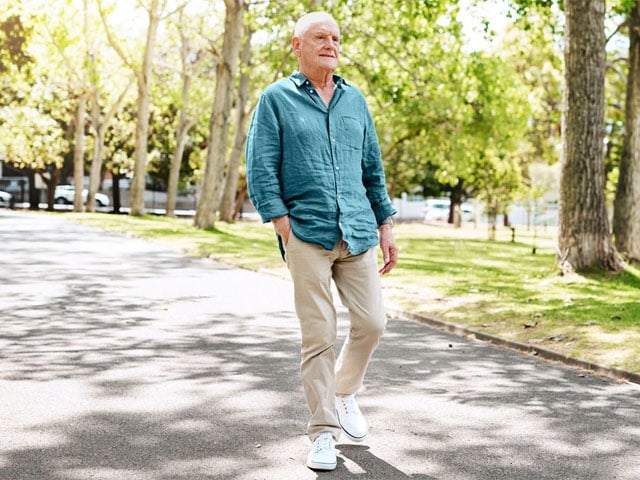London: A new study has found that people with early signs of Alzheimer’s experience problems with orientation.
Experts at University College London (UCL) used virtual reality to examine people with early signs of Alzheimer’s and found that those in the early stages of Alzheimer’s had trouble turning while walking.
The study compared 31 healthy younger people with 36 healthy older people and 43 patients (with mild mental problems).
All three groups were asked to wear virtual reality goggles and complete an activity in which they had to walk in real life. In this activity, participants were guided by a numbered cone along a path consisting of two straight paths connected by a turn. Later, reaching the end, these people had to reach back to the same place from where they started walking with the help of memory.
This activity was repeated in three different cases. The study found that people in the early stages of Alzheimer’s continued to misjudge turns on the road and their sense of direction changed.
According to UCL’s Dr Andre Castignaro, problems with orientation are a key early sign of Alzheimer’s.
They said that when you ask people with Alzheimer’s to turn around, they actually feel like turning around more than they actually do.
(function(d, s, id){
var js, fjs = d.getElementsByTagName(s)[0];
if (d.getElementById(id)) {return;}
js = d.createElement(s); js.id = id;
js.src = “//connect.facebook.net/en_US/sdk.js#xfbml=1&version=v2.3&appId=770767426360150”;
fjs.parentNode.insertBefore(js, fjs);
}(document, ‘script’, ‘facebook-jssdk’));
(function(d, s, id) {
var js, fjs = d.getElementsByTagName(s)[0];
if (d.getElementById(id)) return;
js = d.createElement(s); js.id = id;
js.src = “//connect.facebook.net/en_GB/sdk.js#xfbml=1&version=v2.7”;
fjs.parentNode.insertBefore(js, fjs);
}(document, ‘script’, ‘facebook-jssdk’));


